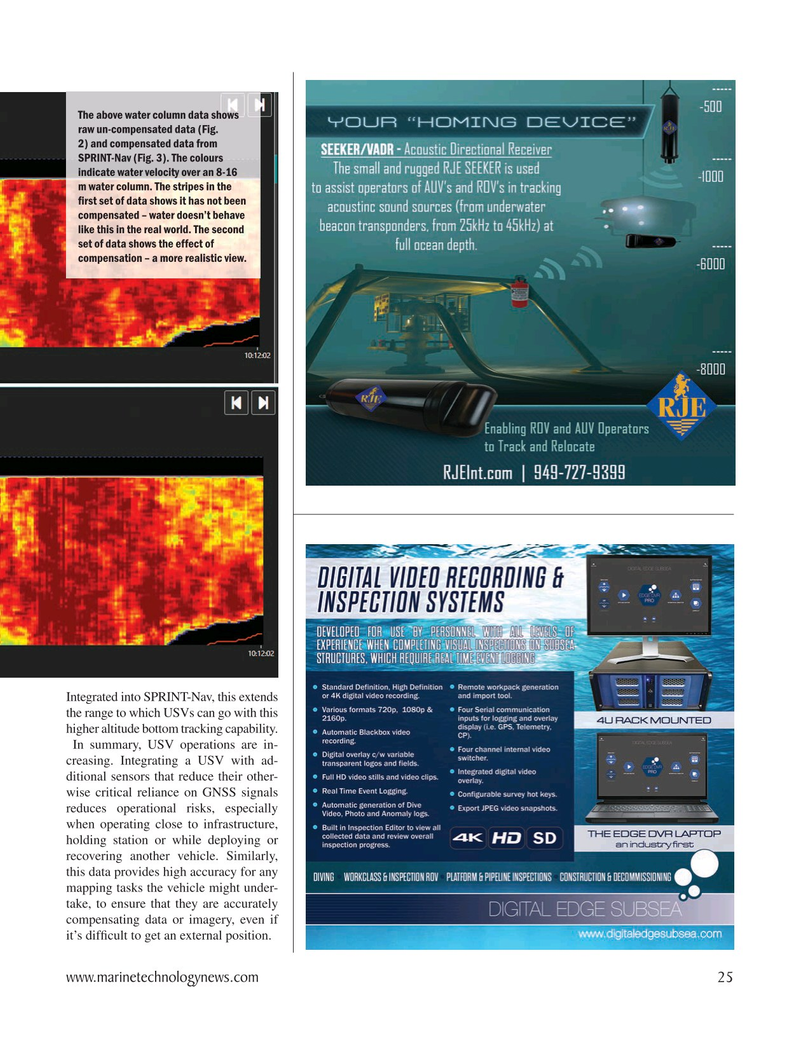
Page 25: of Marine Technology Magazine (January 2021)
Underwater Vehicle Annual
Read this page in Pdf, Flash or Html5 edition of January 2021 Marine Technology Magazine
The above water column data shows raw un-compensated data (Fig. 2) and compensated data from
SPRINT-Nav (Fig. 3). The colours indicate water velocity over an 8-16 m water column. The stripes in the ? rst set of data shows it has not been compensated – water doesn’t behave like this in the real world. The second set of data shows the effect of compensation – a more realistic view.
Integrated into SPRINT-Nav, this extends the range to which USVs can go with this higher altitude bottom tracking capability.
In summary, USV operations are in- creasing. Integrating a USV with ad- ditional sensors that reduce their other- wise critical reliance on GNSS signals reduces operational risks, especially when operating close to infrastructure, holding station or while deploying or recovering another vehicle. Similarly, this data provides high accuracy for any mapping tasks the vehicle might under- take, to ensure that they are accurately compensating data or imagery, even if it’s dif? cult to get an external position. www.marinetechnologynews.com 25
MTR #1 (18-33).indd 25 1/25/2021 9:07:27 AM

 24
24

 26
26
